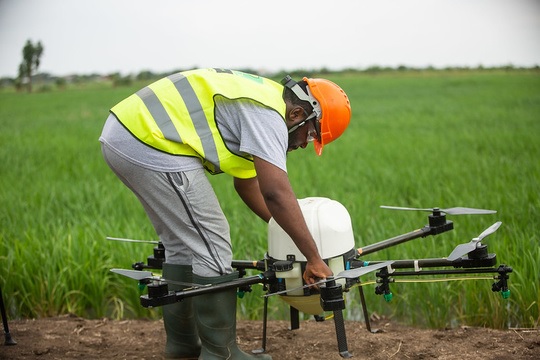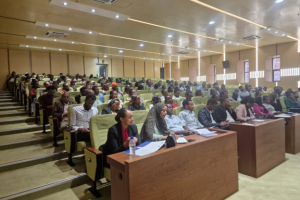
In recent years, Ethiopia has embarked on a remarkable journey-a transformation that is reshaping one of its oldest and most vital sectors: agriculture. Once dominated by traditional methods passed down through generations, the country’s farming landscape is now experiencing a dynamic shift driven by modern technology, innovative practices, and, most importantly, the active involvement of its youth. This revolution is not only revolutionizing farming but also unlocking vast opportunities for private investment, economic growth, and social development.
Historically, Ethiopian farmers relied on age-old techniques-plowing with oxen, manual seed planting, and harvesting by hand. While these methods sustained communities for centuries, they often resulted in low yields, limited access to markets, and high vulnerability to environmental shocks like droughts and floods. As the global economy modernized and technology advanced, the government of Ethiopia recognized the need to adapt and innovate.
Ethiopia’s agricultural sector holds immense potential, considering the country’s vast arable land, rich natural resources, and a large, youthful population. The government, recognizing this, has been proactive in creating an enabling environment for growth and investment. Recent initiatives include the establishment of industrial parks, modernization of irrigation infrastructure, reform of land policies, and incentives for private investors-both local and foreign.
Lately, a landmark event, the “Invest in Ethiopia” forum was held here in Addis Ababa. On the event, which was organized by Ministry Finance, Ethiopia Investment Commission and Development Partners Group several government officials, foreign investors, private sector leaders, development partners, and young entrepreneurs were attended and reflected their view.
The discussions underscored Ethiopia’s strategic move to attract investment that can transform agriculture into a vibrant, competitive industry. The government’s commitment was clear in the words of Sofia Kassa (PhD), Ethiopia’s State Minister of Agriculture: “Our policies are designed to open opportunities for private sector participation, which will boost productivity, create employment, and contribute significantly to our national development goals.”
Across Africa, and Ethiopia in particular, youth are emerging as the driving force behind agricultural transformation. As urbanization accelerates, young people are redefining food culture—embracing organic foods, new culinary trends, and innovative farming methods. They are no longer content with subsistence farming; instead, they see agriculture as a promising pathway for entrepreneurship, social impact, and economic independence.
Experts like Anne Wangalachi, Associate Director at Africa International Development Advisory Service, emphasize that youth involvement is crucial. “Urbanization has changed food habits dramatically,” she explains. Young people are leading this change-embracing organic foods, new culinary trends, and innovative farming techniques. They are instrumental in redefining Africa’s food culture and pushing the agro-processing industry forward.
This trend is vital because agro-processingtransforming raw agricultural products into finished goodscreates a ripple effect of economic opportunities. It not only increases income for farmers but also generates jobs in manufacturing, packaging, marketing, and export.
As urban populations demand healthier, organic, and diverse foods, youth-led startups are developing innovative products such as organic snacks, herbal teas, and traditional spice blends that appeal to both local and international markets.
The Ethiopian government recognizes that empowering youth is fundamental to its agricultural ambitions. It has rolled out a suite of policies and programs aimed at nurturing young farmers and entrepreneurs. These include vocational training centers, incubators and grants.
While pursuing youth centered policy private sector participation is vital in scaling Ethiopia’s agricultural revolution. That is why the government is aggressively working to create conducive environment for foreign investors. Large-scale farms, export-oriented processing plants, and agro-business ventures are creating employment opportunities, especially for youth, and improving infrastructure and technology transfer.
Certainly, when young entrepreneurs partner with private companies and government agencies, it fosters a culture of innovation, sustainability, and resilience. Such collaborations are essential for Ethiopia to compete in global markets and ensure food security, climate resilience, and export diversification.
Undoubtedly, young Ethiopians are no longer just passive consumers; they are active participants, innovators, and leaders in agriculture. Many are involved in small-scale farming, processing, and marketing, turning creative ideas into sustainable businesses. Their participation fosters a sense of ownership, pride, and social inclusion-particularly among young women and marginalized groups.
For example, young women are leading in establishing and managing agro-processing businesses, demonstrating that youth involvement can also promote gender equality and social cohesion. Their energy and innovative spirit are vital in elevating Ethiopia’s agriculture from subsistence to enterprise, ensuring the sector remains resilient amidst global challenges like climate change and fluctuating markets.
To sustain this momentum, continuous investment in education and skills development is essential. Vocational training centers focusing on agro-tech, business management, and marketing can equip young people with the tools needed for success. Public awareness campaigns highlighting the importance of sustainable agriculture and technology adoption can also foster a culture of innovation.
Partnerships between government, private sector, academia, and civil society are critical in accelerating progress. These collaborations can facilitate knowledge transfer, provide access to finance, and expand market linkages for young entrepreneurs.
With modern technology, sustainable practices, and a youthful, innovative generation, Ethiopia has the potential to become a leading exporter of high-quality agricultural products. The country’s natural resources, combined with the energy and resilience of its youth, position it uniquely to achieve this goal.
Investing in youth and agro-processing today is an investment in Ethiopia’s sustainable future. When young people are empowered as active participants and innovators, they become the architects of a new agricultural renaissance—one that promises prosperity, social inclusion, and resilience for generations to come.
Ethiopia’s agricultural revolution is more than a development agenda; it is a societal transformation driven by its most valuable resource-its youth. By creating opportunities, providing support, and fostering innovation, the country can harness the full potential of its young population. This is Ethiopia’s moment to reimagine agriculture-not just as a means of subsistence but as a vibrant, dynamic sector that fuels economic growth and social progress.
The future of Ethiopia’s agriculture depends on the active engagement of its youth. With strategic policies, private sector partnerships, and unwavering commitment, Ethiopia can build a resilient, inclusive, and prosperous agricultural sector—one that will sustain its people and inspire neighboring nations. The young generation holds the key to Ethiopia’s agricultural renaissance, and their resilience, creativity, and leadership will shape the nation’s destiny for decades to come.
THE ETHIOPIAN HERALD TUESDAY 27 MAY 2025




